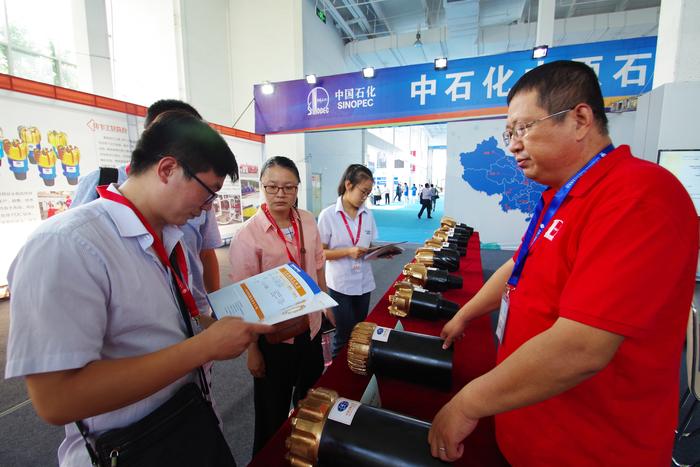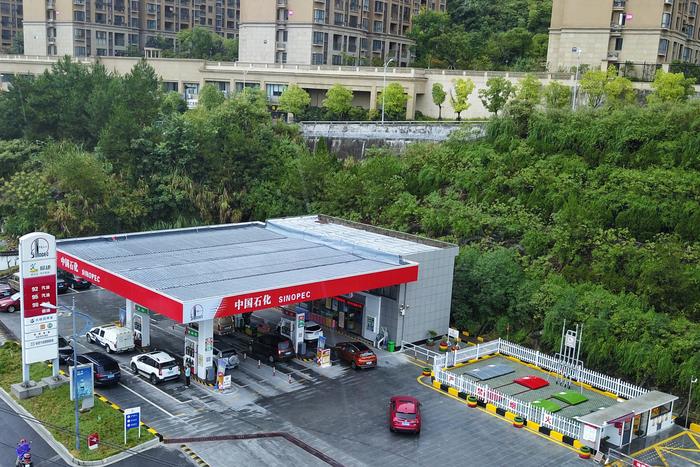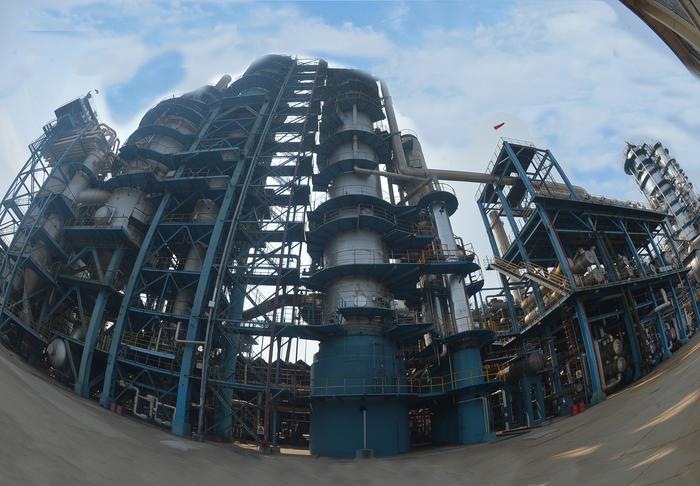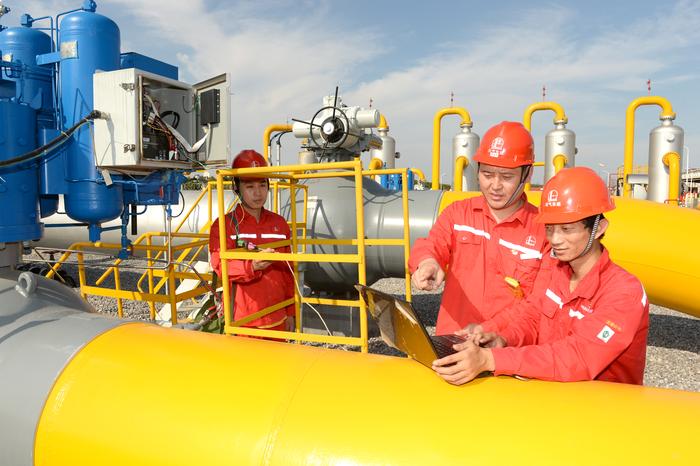|
| 2019-09-11 来源: 中国石化新闻网 |
| 石化新闻 |
|
中国石化新闻网讯 据今日油价9月9日报道,自从欧佩克开始限制石油生产以来,伊拉克这个仅次于沙特阿拉伯的欧佩克第二大产油国,在过去两年半的时间里几乎每个月都超过产量上限。但是现在伊拉克说它已经准备好减产。 伊拉克石油部长加赫班(Thamer Ghadhban)表示,伊拉克现在已经准备好下个月减少原油产量。这位官员在一份声明中说:“我们致力于达成减产协议。”ghadhban的声明与证据背道而驰,这些证据表明,自第一份减产协议签署以来,伊拉克一直未能履行其减产义务。 对伊拉克来说,“欧佩克+”协议恰逢该国安全局势的改善,石油产量开始稳步增长。 尽管巴格达声称它需要更高的石油产量来获得更多的石油收入(占政府收入的90%),以重建一个遭受数十年战争破坏的国家,但作为欧佩克的第二大石油生产国却在这个欧佩克这个卡特尔组织的车轮里别了根辐条——他希望其他所有成员国都遵守协议,进行石油产量削减。 伊拉克未能完全遵守协议也是欧佩克内部紧张局势的原因之一,另外德黑兰还认为欧佩克内部的竞争对手窃取了它的市场份额。 标准普尔全球普氏(s&p global platts)上周公布的最新月度调查显示,伊拉克8月份的产油创下新高,据估计,该国已以488万桶/日的速度注入了创纪录的石油。普拉茨的调查显示,伊拉克8月份的日产量比7月份增加了10万桶,超过伊拉克上个月451万桶的日产量配额,高达37万桶。 路透社的调查还发现,伊拉克8月份增产,路透社和普拉茨的调查都估计,尽管欧佩克不断呼吁“全面遵守”和“市场稳定”,但今年8月份欧佩克首次提高了石油产量。调查显示,伊拉克和尼日利亚是欧佩克8月份增产的最大贡献者之一。 欧佩克8月份的官方产量数据将于9月11日公布,但此前公布的7月份石油市场月度报告显示,伊拉克的产量增幅最大,7月份产量增加了32000桶/日,达到475.3万桶/日,而沙特阿拉伯7月份的产量则被Ano每天13.4万兰特,低于欧佩克配额50多万桶石油。彭博社(Bloomberg)的船舶跟踪数据显示,欧佩克8月份也提高了石油出口,伊拉克石油部的数据显示,伊拉克原油出口从7月份的356.6万桶/日增加到上月的363.3万桶/日。 标普环球普拉特(S&P Global Platts)大宗商品定价全球主管戴夫•恩斯伯格(Dave Ernsberger)上周对CNBC表示:“最近伊拉克石油产量的增加,让原本让欧佩克头疼的问题变成了彻底的偏头痛。” 伊拉克的这些增产再次引起了欧佩克主要成员国沙特阿拉伯的注意。自欧佩克+联盟于2017年1月开始减产以来,欧佩克曾多次就破坏减产的行为,向违背协议的成员发出警告。 不久前,伊拉克石油部长塔默加赫班周日表示,伊拉克将从10月份开始削减石油产量,并将坚持欧佩克的减产计划。他说,过去几个月,由于夏季国内需求增加,伊拉克的石油产量超过了配额,炼油厂将在10月份进入维修期,国内需求将下降。 洪伟立 摘译自 今日油价 原文如下: Is OPEC’s No.2 Finally Cutting Production? Since OPEC started restricting oil production, Iraq—the cartel’s second-largest oil producer behind Saudi Arabia—has exceeded its output cap almost every month for more than two and a half years now. But now Iraq says it is ready to get onboard. Iraq says it is now ready to reduce its crude oil production next month, its oil minister, Thamer Ghadhban, said as quoted by Reuters. “We are committed to the agreement to reduce production,” the official said in a statement. Ghadhban’s statement runs counter to evidence, which shows that Iraq has consistently failed to comply with its production cut obligations ever since the first production cut agreement was inked. For Iraq, the OPEC+ deal coincided with the time when oil production started to steadily grow as security improved in late 2017 . While Baghdad has argued that it needs higher oil production to get more oil revenues—which account for 90 percent of its government proceeds— to rebuild a country damaged by decades of wars, OPEC’s second-biggest oil producer has been putting a spoke in the cartel’s wheel to have all members fully compliant with the cuts. Iraq’s continuous non-compliance has also created another reason for tension within OPEC, on top of Iran balking at other members (Saudi Arabia and allies) over what Tehran sees as rival producers within the cartel stealing its market share while Iran is under U.S. sanctions. Iraq’s non-compliance reached a new high in August when it is estimated to have pumped a record-high volume of oil at 4.88 million bpd, the latest monthly S&P Global Platts survey showed last week. Iraq pumped 100,000 bpd more in August than in July, exceeding Iraq’s output quota of 4.512 million bpd by a whopping 370,000 bpd last month, the Platts survey showed. The Reuters survey also found Iraq increasing its production in August and estimates by both Reuters and Platts surveys point to OPEC having boosted oil production in August for the first time this year, despite its continuous calls for ‘full compliance’ and ‘market stability.’ Iraq was one of the biggest contributors to OPEC’s production rise in August, alongside Nigeria, according to the surveys. OPEC’s official August production figures are due out on September 11, but the previous Monthly Oil Market Report with data for July showed that Iraq booked the biggest production increase, raising output by 32,000 bpd to 4.753 million bpd in July, while Saudi Arabia cut its July output by another 134,000 bpd to stay more than half a million barrels of oil per day below its OPEC quota. OPEC also lifted its oil exports in August, ship tracking data by Bloomberg showed, and Iraq’s crude oil exports increased to 3.603 million bpd last month from 3.566 million bpd in July, according to data from Iraq’s oil ministry. “The recent increases in Iraqi production turned what was a sort of minor headache for OPEC into a fully-blown migraine,” Dave Ernsberger, who is global head of commodities pricing at S&P Global Platts, told CNBC last week. These production increases in Iraq drew the attention of OPEC’s kingpin Saudi Arabia, again. The cartel’s de facto leader has called out rogue members over their sketchy compliance record several times since the OPEC+ alliance began cutting production in January 2017. A few days later, Iraq’s Oil Minister Thamer Ghadhban said on Sunday that Iraq would be cutting its oil production starting in October and will stick to the OPEC production cuts. Over the past few months, Iraq has pumped above its quota because of higher domestic demand in the summer, Ghadhban said, adding that refineries would enter maintenance in October and domestic demand would drop.
|








